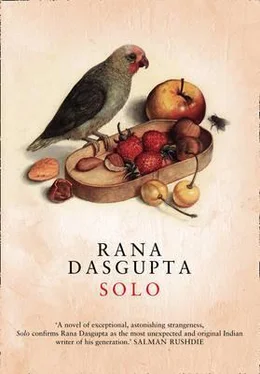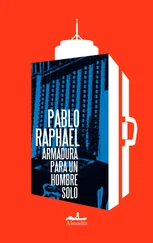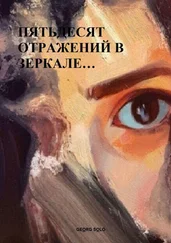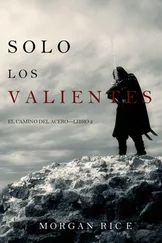‘If I take care of it, it will grow feathers and sing like all the other sparrows.’
‘You can see red veins through its skin. It’s disgusting.’
When it was time for the evening meal, Irakli took the bird to show his mother. She said,
‘Leave that thing outside. And wash your hands!’
He tried to reason with her. It was getting cold, and the bird needed constant feeding. But she would not let him bring it in the house, and it was locked out for the night.
In the morning, the bird was stiff and dry. There was a drop of blood under its beak and, as Irakli watched, an ant scurried out from under a stubby wing.
Irakli might have blamed his mother for the bird’s death, but he realised she was only the instrument. His true resentment was reserved for the order of things, which made the divisions between sleep and wake, and human and animal, and inside and outside — divisions through which a defenceless bird might fall to its death.
Irakli never ceased to find it strange that he should be stuck in this place, with these people, when there were a million other ways it could have been. Why had he been born now, and not in another era? By what chance had he come to be poor and not rich, a man and not a woman? Life seemed nothing more than a series of improbable accidents, and yet everyone had a sense — didn’t they? — that there was something else, deeper and prior, to which they had to return.
Irakli chose for his associates other people who set no store by the way the world had fallen out. He sought a truer place, and he paid little attention to his body, or his food, or anything else that was merely accidental. He harboured an unhappiness about reality — and he wrote poetry, because straight talk could not capture what he meant.
Khatuna was returning from a meeting in Kakha’s Mercedes when she saw Irakli out of the window.
‘Stop the car!’ she said. ‘That’s my brother!’
The car stopped and her bodyguard jumped out warily. Khatuna opened the window and called to Irakli.
‘Let me give you a ride!’ she said. ‘Where are you going?’
‘Nowhere,’ he said. He didn’t get in the car. He looked thin and scruffy and had a newspaper under his arm.
The afternoon was warm — hot, even, for autumn — but Khatuna’s bare arm on the sill had goose pimples from the car’s air conditioning.
‘Get in!’ she said, and he did so. The car moved away. Irakli said,
‘Is that a new haircut?’
‘Do you like it?’
‘You look like a gangster’s girlfriend.’
Khatuna was irritated. They drove up Rustaveli Avenue, and she directed the driver to pull up in front of the old Marriott.
‘I’m not going in there,’ said Irakli. ‘We can go somewhere else. We can go for a walk if you like.’
He set off along the street.
‘What’s wrong with you?’ she called. ‘Why do you want to traipse around out here?’
‘I can’t afford to go into places like that.’
‘If you earned some money you wouldn’t have to worry.’
‘I have money. You give me enough money. What else do I need? All I need is to think and write my poetry. I don’t need to go to places where you pay a month’s salary for a coffee.’
‘ Poetry .’ Khatuna scowled. ‘Where’s your self-respect? Look at your clothes. Look at the state of your hands. I feel sick looking at them.’
‘You and I are exactly the same, it’s just that you get handouts from a gangster.’
‘I work hard for my money. And he’s not a gangster .’
‘There are thousands of Georgian women in other countries who pay for your coffees with their legs in the air.’
‘Don’t be gross, Irakli. Have some respect. All your money comes from Kakha.’
‘He’s stolen everything he has. That money was never his in the first place. Do you think I should be grateful?’
‘Kakha is a businessman. He loves this country, and he loves Georgians. He’s a role model. He has the best security forces: without him there’d be no law and order in this place. There would be pure chaos.’
‘You’d better be careful. People like Kakha kill each other for no reason at all. Think about what you’re doing. You’re becoming frantic: you go from one thing to the next, and you never stop to think.’
A girl approached them selling roses, and Irakli bought two for his sister. They crossed Freedom Square and headed down Leselidze Street. Khatuna mused,
‘One day I’d like to sit down and read lots of books. When I’ve lived this life and come back in another era I’ll teach myself a lot of things. I’ll learn about anthropology and economics. History, literature, philosophy, politics. Science. I’d like to know about those things. But how would that help me now?’
Irakli was studying her.
‘Your list,’ he said, ‘was in alphabetical order. Anthropology, economics, history … What are the chances of that? Every new word you added I was waiting for you to spoil it.’
Khatuna said,
‘Don’t you have a girlfriend to give roses to?’
He led her into a shop. A naked bulb hung down, illuminated for the late afternoon gloom.
‘No. A lot of girls like me, though.’
There was barely space to stand between the sacks of onions and potatoes on the floor. The shopkeeper was adding the last customer’s bill on an abacus. Irakli said,
‘Do you want some coffee?’
She shook her head, and he picked out a single sachet of Nescafé. She said,
‘Why can’t you buy a whole jar like everyone else?’
They passed a couple of collapsed buildings, the open interiors piled high with fallen roof tiles.
‘A jar is a long-term investment. You never know what will happen tomorrow.’
She looked sullen.
‘I wish you would live better.’
‘If I had ten million lari I would still live like this.’
He became inexplicably joyful, and Khatuna let herself relax. When he was happy he could make her laugh like no one else. They walked for a long time, crossing a bridge and coming down on the opposite bank of the river. She told him stories of Kakha, and people she had met. They passed a band of young men who were burning rubber to light up the encroaching evening. They had tied the tails of two dogs together, and were watching them for their entertainment.
Darkness came, and they walked on. Old people were begging in the shadowy doorways, or peeling sunflower seeds to sell. There were shops of second-hand clothes, old theatres converted into antique stores, and stalls for currency trading. They came to a freight depot where policemen inspected the contents of trucks, and men queued at the side of the highway waiting for night labour. There were stalls set up, lit by bulbs wired to car batteries, where people sold electrical components and construction materials, sinks, piping and cleaning fluids. Cabbages and potatoes were sold out of oil drums standing in the mud. A man gave his chickens water to drink out of a jam jar. Children chased each other around the stalls, and taxi drivers passed time by their line of Ladas, shaking their heads at the young man who was trying to sell a Coke bottle full of diesel fuel. Families were leaving at the end of the day, parents and children, their possessions piled up in old baby carriages.
Irakli and Khatuna arrived at a damp huddle of apartment blocks. The children’s swings had lost their chains, and were just a skeleton of rusted poles where a group of teenagers were nevertheless gathered, burning polystyrene with bitter, lung-stopping smoke. It was dark now, and the green of the flame tinged their pale skin.
‘Where have you brought me?’ Khatuna asked.
‘I’ve come to see some friends,’ Irakli said.
Khatuna looked uneasy.
Читать дальше
Конец ознакомительного отрывка
Купить книгу












